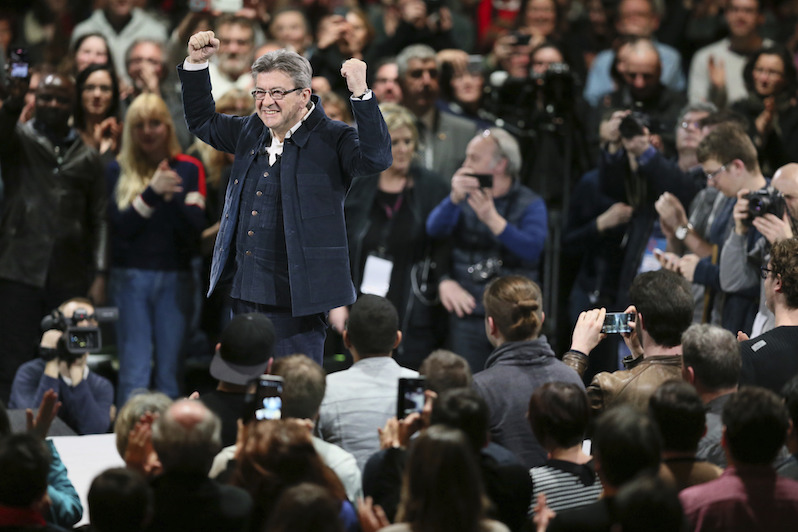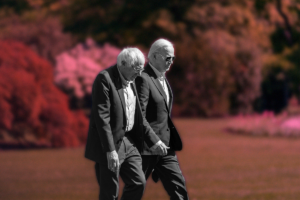As French Election Nears, a Bernie Sanders-Style Candidate Rises in the Polls
The threat of proto-fascist Marine Le Pen continuing the trend started by Brexit and Donald Trump’s victory is tempered by the possibility that a socialist—Jean-Luc Melenchon -- could prevail. The threat of proto-fascist Marine Le Pen continuing the trend started by Brexit and Donald Trump’s victory is tempered by the possibility that a socialist—Jean-Luc Melenchon—could prevail. Shades of Sanders: French presidential candidate and socialist Jean-Luc Melenchon draws a crowd at a rally in Rennes, France, on March 26. (David Vincent / AP)
1
2
3
4
Shades of Sanders: French presidential candidate and socialist Jean-Luc Melenchon draws a crowd at a rally in Rennes, France, on March 26. (David Vincent / AP)
1
2
3
4

Shades of Sanders: French presidential candidate and socialist Jean-Luc Melenchon draws a crowd at a rally in Rennes, France, on March 26. (David Vincent / AP)
Independent journalism is under threat and overshadowed by heavily funded mainstream media.
You can help level the playing field. Become a member.
Your tax-deductible contribution keeps us digging beneath the headlines to give you thought-provoking, investigative reporting and analysis that unearths what's really happening- without compromise.
Give today to support our courageous, independent journalists.








You need to be a supporter to comment.
There are currently no responses to this article.
Be the first to respond.